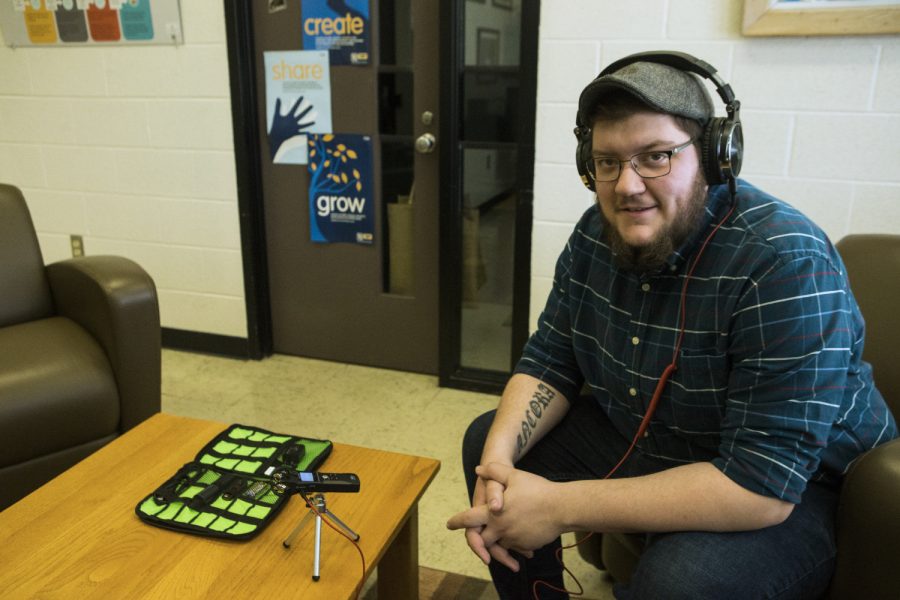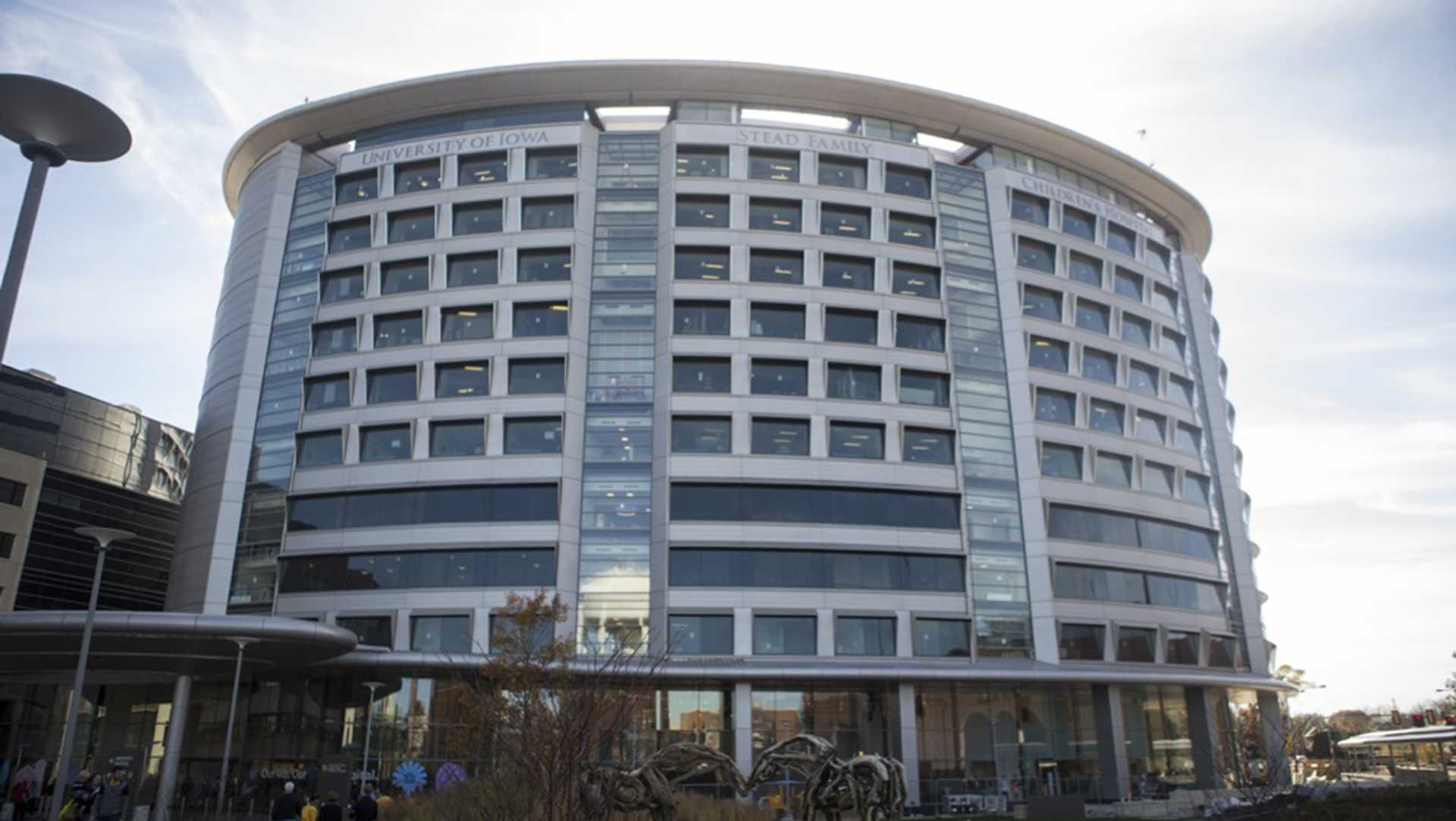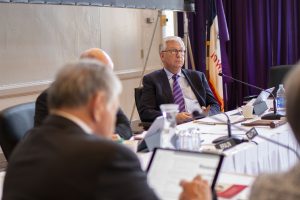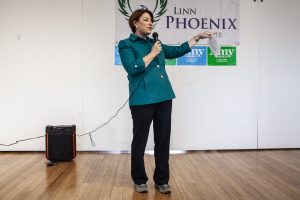Transgender Oral History Project celebrates and preserves trans history in Iowa
Aiden Bettine, a UI grad student, plans to collect archives and interviews from the trans community in all 99 counties in Iowa.
Graduate student Aiden Bettine with a Trans Oral History kit at the UI Main Library on April 29, 2019. The kits are distributed to various locations in Iowa so that transgendered/nonbinary individuals can record their stories.
April 29, 2019
An oral-history project can help preserve history of communities and serves as an important archive for those hoping to do research. A University of Iowa researcher hopes to create that kind of archive for the transgender community across the state with the Transgender Oral History Project of Iowa.
Aiden Bettine, a graduate student pursuing a Ph.D. in history and a master’s in library/information science, created the Transgender Oral History Project to preserve, celebrate, and educate people on the history of transgender and gender-nonconforming people in the state.
“It is very much a community project driven from within the community. The goal is to build a digital archive of interviews and related materials or documents of ephemera that relates to the trans experience across the state of Iowa,” he said. “It’s got a big mission, to some extent.”
Bettine said using oral history allows researchers to engage with history without visual distractions.
RELATED: UI Trans Alliance focuses on activism and education in Trans Week of Action
“I think there’s something really empowering and beautiful about voice and what oral histories mean for a listener, or a researcher, or anybody engaging with the just the audio,” he said. “I think we’re so continually stimulated with different forms of media and different visualizations and constantly looking at things that there’s something really personal about sitting and listening to an oral-history interview where you just become immersed in someone else’s story and their life in a really particular way.”
A grant from the UI Office of Outreach & Engagement allowed Bettine to build 25 kits to distribute to interviewers around the state to capture histories for the project.
The kits can allow greater accessibility and outreach for the project, he said, because not everyone has access to a device that can record quality audio.
Bettine plans to visit college campuses and public libraries around the state to find participants for the project as well as training interviewers. Bettine plans to have transgender and gender-nonconforming individuals be both the subject and the interviewers. He hopes to get oral histories from all 99 of the state’s counties.
An important aspect of the project is the ability for participants to decide how much of their oral history will be made public and who will be able to listen to their interviews. UI Assistant Professor of library/information science Lindsay Mattock helped Bettine implement a system called Mukurtu to help manage and protect the digital archive.
“Aiden came to me thinking about using the platform for [the project],” Mattock said. “Those same affordances of the tool could carry over to protect the privacy and more sensitive information in the project and give participants in the project a little bit more control over their interviews.”
Bettine modeled the project on similar projects in New York and Wisconsin. A.J. Lewis, a postdoctoral fellow at Grinnell College, was involved with the Transgender Oral History Project of New York City.
Lewis said Bettine has adapted the project to work in Iowa, where trans communities can be less connected than in New York City.
“He’s very attentive to the differences in context — the sort of emphasis on getting trans folks to take direction not just as interview subjects but doing interviews,” he said. “I think that’s an important method to be bringing to the Iowa context. In particular, when there’s not as expansive or connected a trans community here as there is in New York City, one of the values of product, and not the process, is that it is a mechanism for developing new forms of cultural transmission. That work itself is bringing trans folk together.”






